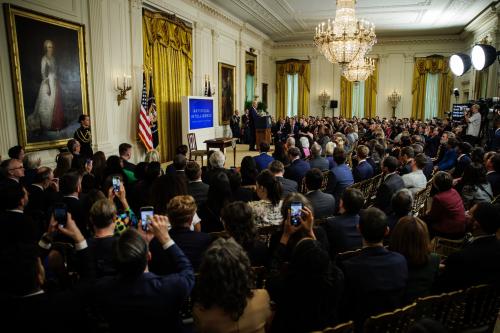Editor’s note: Daniel L. Byman and Benjamin Wittes discuss the future of the National Security Agency (NSA) following the leak of classified information about the agency’s electronic surveillance programs by former NSA contractor Edward Snowden. They explain that any reforms to the agency’s operations must strike a delicate balance between the nation’s very real intelligence and security priorities and the American public’s demand for transparency, accountability and privacy protections. They also argue that the NSA needs to do a better job at informing the public about just what it is the agency actually does.
The long-running debate over the tradeoffs the United States should make between national security and civil liberties flared up spectacularly last summer, when Edward Snowden, a National Security Agency contractor, handed journalists a huge trove of heavily classified documents that exposed, in excruciating detail, electronic surveillance programs and other operations carried out by the NSA. Americans suddenly learned that in recent years, the NSA had been acquiring the phone and Internet communications of hundreds of thousands of U.S. citizens, as well as collecting massive volumes of bulk telephone records known as “metadata”—phone numbers and the time and length of calls. Along with the rest of the world, Americans found out that the NSA had broken common forms of online encryption, tapped the phones of various foreign heads of state, and monitored global communications far more aggressively than was previously understood.
Howls of outrage erupted. Brazilian President Dilma Rousseff, who learned from the Snowden leaks that the NSA had been monitoring her personal conversations, described the NSA’s activities as a “violation of human rights and civil liberties,” decrying the “disrespect to national sovereignty.” In the United States, both ends of the political spectrum denounced the NSA’s activities. Rand Paul, a Republican senator from Kentucky, called them “an all-out assault on the Constitution,” and the former Democratic vice president Al Gore said they were “obscenely outrageous.”


Commentary
Reforming the NSA: How to Spy After Snowden
April 24, 2014